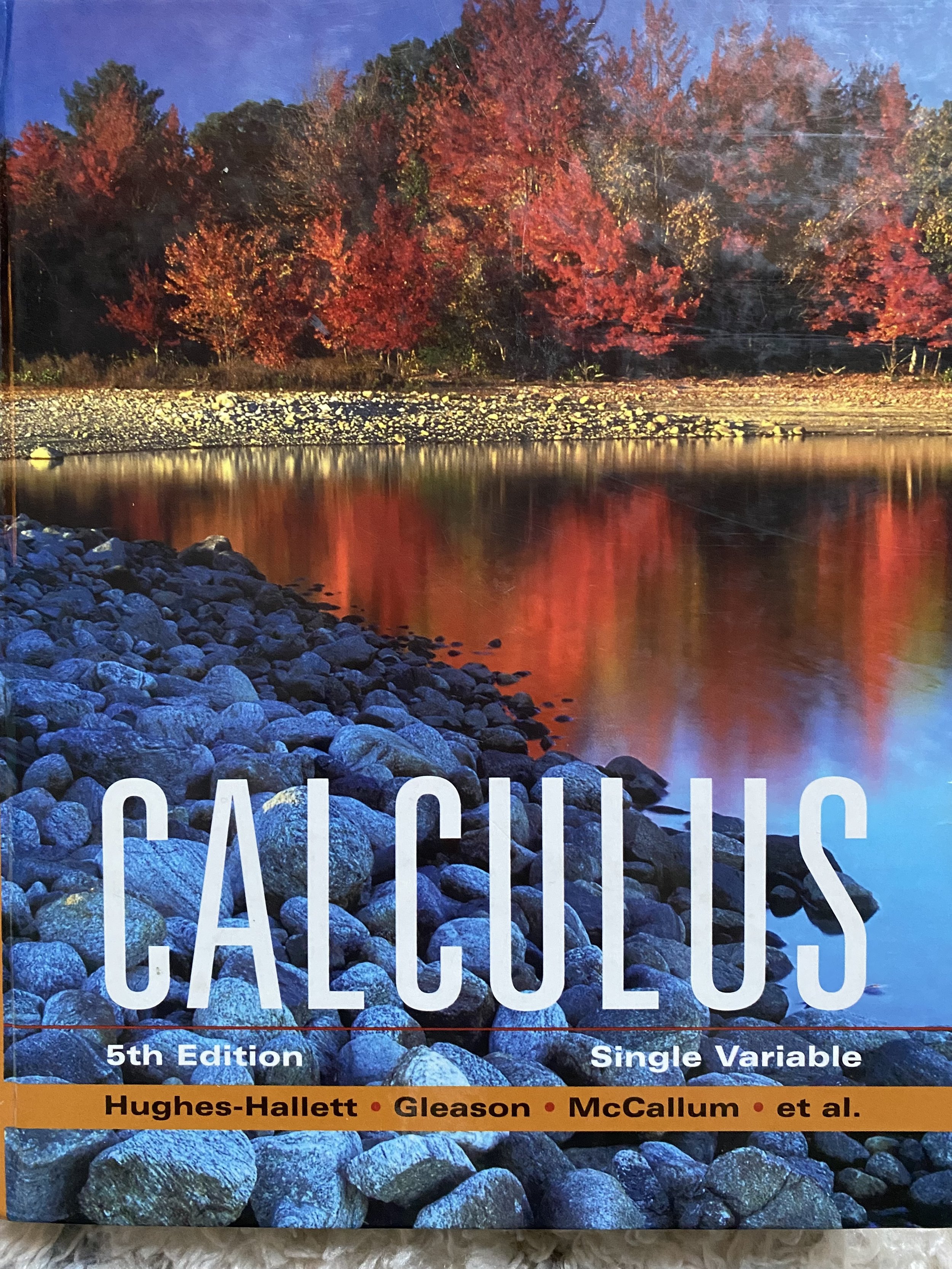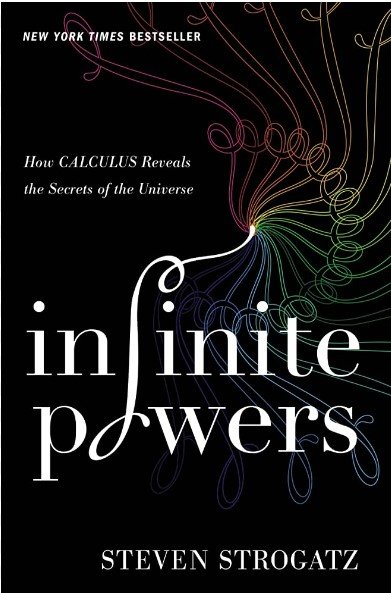My Favorite Print Resources for Lesson Planning and Curriculum Ideas:
“Functions Modeling Change: A Preparation for Calculus” by Hughes-Hallet et al. Single-handedly the most important textbook I’ve ever used as a teacher. This book has excellent application problems and real-world connections, which was the main focus of the authors. I LOVE the problem sets in this book!
“Calculus” by Hugh-Hallett et al. A follow-up to the above textbook, this book continues the conceptual based presentation of Calculus topics with numerous accessible application problems. A huge inspiration to me as I create higher-order thinking tasks for my students.
“Mathematics Teacher” magazine by National Council of Teachers of Mathematics BEFORE they switched to a single PK-12 magazine. Their previous magazine publications had incredible resources, challenge problems, and great lesson plans ready-to-use. I still have a huge pile of all of mine from my first years of teaching!
“Mathematical Association of America” publications by MAA. I became a member of MAA in 2020 and I have benefitted greatly from having access to their daily emails containing questions and answers from math teachers of all levels, including professors. Everyone in MAA is so helpful, passionate, and willing to share ideas. They have very cool math connections to everyday phenomena, such as how the calendar was created or how our number system developed (history of math is a common theme that members discuss, which I enjoy learning about and sharing with my students). They have really good high-level math included that help me brush up on my own math skills.
“Infinite Powers” by Steven Strogatz. Anyone teaching Calculus should read this book to gain an appreciation of how Calculus works, written in everyday language for anyone to understand. That’s the beauty of this book - you don’t even need to fully grasp math concepts to understand Steven’s writing. I love the passages on Optimization and airline overhead bins, Usain Bolt and Instantaneous change, and Curing HIV with Differential Equations. I have my students read at least 6 passages from this book throughout the year.
“Zero: The Biography of a Dangerous Idea": This book helped me create my History of Calculus PowerPoint presentation that I do every year with my students to help the appreciate Calculus: the greatest achievement of mankind. Some portions are detailed to the point of making a reader lose interest, but there are some real gems in this book.
“Math Through the Ages: A Gently History for Teachers” by William Berlinghoff. In case you can’t tell by now, I love learning about the history of mathematics and find that incorporating this in my classes really helps my humanities-geared students buy in to what we’re studying. I used this book in a math education course in college and have referred to it extensively since then to learn more about how math was developed by different civilizations over time.







My Favorite Online Resources for Lesson Planning and Curriculum Ideas:
Desmos saved me during Covid remote learning, and going through that experience helped me convert some of my stale, paper, teacher-led lessons into amazing, interactive, student-led experience. I have over 100 saved Desmos activities, some edited from other creators, some that I built from scratch, and am constantly finding more. Desmos is also a beautiful, free, online graphing calculator.
I discovered Deltamath in 2019 as an alternative to Khan Academy. I primarily use it to assign optional extra practice problem sets to my classes. I love how there is no penalty for a wrong answer, and anytime a student makes an error, they can see a fully done out solution along with extra help videos built in. FAVORITE PRACTIVE SET: Volumes of Revolution - UNBEATABLE graphics and visuals!
This site was created by Robert Kaplinsky (whose personal blog/site is listed below) and is the home to thousands of incredible open-ended problems that really require students to think. Rather than just mimic their way through a solution method, they work backwards to solve problems related to any level of math from K-12. You can search for problems by name, topics, of grade level.
Calculus teacher Mark Sparks generously made his entire textbook available for free to download on Teacher Pay Teachers.
This Dropbox has been such an invaluable resource to me. I discovered it two years ago and it allowed me to incorporate so many fresh, new problem sets and assessments into my classes. His resources helped me completely rebuild all of my tests in 2022 to be aligned with the Unit 1-10 Collegeboard curriculum. THANK YOU to Tony Record!
“Experience First, Formalize Later” is the motto of Math Medic, a site created by two math teachers which contains entire curriculums for all levels of math. Their resources are basically the opposite of a textbook and encourage students to conceptually explore different topics before creating any rules or formulas. They host workshops and run an active blog as well.
From Math Medic, but JUST AP Calculus AB and BC related. Go here to access an entire curriculum for AP Calculus unit by unit. My favorite lesson was related to introducing students to the idea of Instantaneous Velocity and how it related to derivatives. Plus, you get to watch a cool video of the Red Bull sky dive from space! Their lessons are very conceptual based, so if you’re looking for more drill style practice of certain topics, look elsewhere.
A nearby academically-advanced high school that is specifically math and science based uses this curriculum, and reading the problems they use is very interesting. They do not break their study of math into Algebra I, Geometry, Algebra 2, Pre-Calculus, or Calculus. Instead, they give students sets from their online book to do for homework and then they present their methods to the class the next day. All problems are open-ended and possibly multi-solution. Very neat!
If you teach math, you NEED to read this book! It will change your perception of teaching. Enough said.
A software created by Audrey Weeks using Geoemeter’s Sketchpad. Calculus is all about the study of how things change, so why should we be teaching it using stagnant photos from a book? This software was invaluable to me in my first years as an AP Calculus teacher to help my students visualize Riemann Sums, Tangent and Secant lines, Volumes, Average Value, Areas, and more. It also has dynamic presentations of solutions to the Free Response Questions from the AP exam. Downside: you need Geometer’s Sketchpad to run in. At this point, Demos and Deltamath can do most of the same thing for free.
Virge Cornelius’ Teachers Pay Teachers account has a HUGE variety of circuit training problem sets for all levels of high school math. I use these frequently in my Algebra II, AP Calculus, and remedial classes as engaging and interactive classwork practice. The students actually enjoy doing these since they’re self-checking! The quality of work is excellent and really require students to think.
My Go-To Blogs for Teaching Inspiration:
By Robert Kaplinsky: This website has excellent questions to get students thinking about everyday phenomena through a mathematical lens. It also contains a blog and resources.
By Julie Reulbach: A blog full of teaching ideas and photos. Go here to fill out a Google Form which adds you to an active community of Algebra II teachers that collaborate and share resources
By Michelle Emerson: Technically a VLOG, not a blog, but seriously, check out her YouTube channel for COUNTLESS ideas on classroom organization, paperwork ideas, decoration inspiration, and technology recommendations.
By Sam Shah: Math resources for nearly every high school math course and a high-quality blog
Run by Sarah Carter: I use this site most for classroom decoration inspiration and fun puzzles to use in class. She also has numerous resources and activities for different levels of math and runs a blog.
If you haven’t ever scrolled through Dan Meyer’s X (Twitter) page (@ddmeyer), you are missing out on some thought-provoking, stimulating content that can lead you to countless other online resources. Dan posts frequently about a variety of math and education topics including Desmos, Professional Development, opinion commentary on the role of technology in education, fun math-related content, and more.
Also, this link from Dan’s twitter so I don’t have to scroll through his twitter looking for it every time my laptop restarts for an update and closes all my tabs -> https://conference-handouts.s3.amazonaws.com/2023-ncsm-washington-dc/index.html